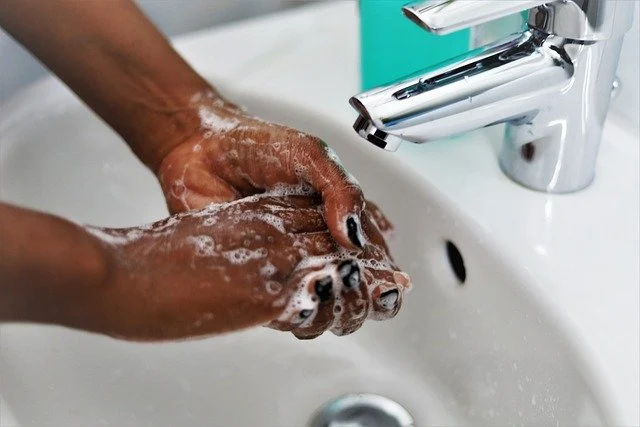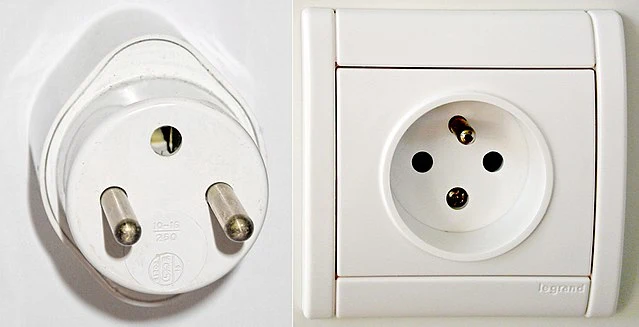How to stay well while traveling in Asia
Staying well while traveling can be a challenge, but traveling around Asia has its own health challenges and there are a few special things you need to be aware of to stay well while traveling around Asia.
Managing Jet Lag

Jet lag is your body’s way of telling you that the daylight hours in the place you’re in don’t match up with its expectations of normal daylight hours. It’s a very common problem after a long-haul flight into a new time zone and it’s one of the things that can weaken your immunity to new bugs and illnesses. So managing jet lag is important to your enjoyment of your Asian adventure.
The key to minimizing jet lag is to eat as little as possible during long-haul flights and drink lots of water … water, not alcohol. The more water you can drink during the flight, the less you will experience jet lag on arrival. Of course, a little sleep on the flight also helps.
To manage jet lag you need to quickly reset your body clock to the new time zone. This means don’t climb into bed when you get to your hotel if it’s the middle of the day and doesn’t eat breakfast just because the last meal you had was dinner. Get straight into the rhythm of your destination. If it’s midday at your destination when you arrive, have lunch and use your afternoon to explore, even if you’re tired. Eat dinner when the sun goes down and go to bed at your usual time, but according to the new time zone. When you wake up the next morning, your body clock will be reset.
Most popular Asian tourist destinations are in the tropics, so it’s going to be hot and probably quite humid as well. Your body will lose a lot of water through sweat in these environments, and you need to replace that water throughout the day.
Staying well hydrated in the heat gives your body a chance to fight off any minor bugs and illnesses you might encounter in your travels.
Just be sure the water you’re drinking is safe and clean. Asian countries may not have the same water treatment and filtration standards you’re accustomed to, so don’t drink the water out of the tap. Drink bottled water from properly sealed bottles. I usually buy water in stores like Tesco or 7-11 where it’s very cheap, but your hotel or guest house will usually supply some bottled water too.
Try to drink 7-8 bottles of water each day during your travels, and more if you’re on adventure tours where you are physically active and in the sun most of the day. It will also help you manage to sunburn.
By all means, have a beer or a glass of wine … I do! But keep it to the evenings after the sun goes down and have a glass of water before each glass of alcohol to keep your body well hydrated because alcohol will suck the water from your body faster than you can replace it.
Let’s say this again … most popular Asian tourist destinations are in the tropics and it’s going to be hot, sometimes very hot. Sunburn and even sunstroke can be major risks to your health when you travel around in Asia so remember to slip, slop, slap, seek and slide your way through your Asian holiday.
At home, you might be able to manage sun protection by avoiding prolonged exposure in the middle of the day, say from 11-3. But in many parts of Asia, the sun can be burning you at 8-9 AM and still be burning you at 5-6 PM! Don’t take that chance.
Wearing sun-smart clothing with a UV protection rating doesn’t mean you have to look like a wally on the beach. There are stylish options around now that will still offer you protection from the sun while still being fashionable, like Solbari Sun Protection Wraps or Seafolly beach shirts for the girls, or Quicksilver surf shirts and Forte arm sleeves for the guys. Just Google “sun smart clothing”.
Sunscreen is a must when you are outdoors in most parts of Asia, even high in the mountains of Nepal or Bhutan where you can freeze your butt off and still get sunburned. Check the use-by date on that bottle because out-of-date sunscreen might not be giving you the protection you think. Use at least an SPF-30 sunscreen, but SPF-50 is better. Don’t just put it on once, apply it every hour or two through the day and especially after you come out of the water. Don’t trust the marketing hype on the label. Sunburn really will spoil your holiday.
If you’re going surfing, kayaking, sailing, or riding motorbikes, anything that exposes you to both sun and wind, the risk is even higher. Windburn is a huge problem for travelers in Asia and you need extra protection to avoid it. Zinc sunblock creams on your lips, nose, cheeks, and forehead are essential. Keep your head covered and use sunscreen twice as often as you normally would. And drink twice as much water.
You can always spot the tourists in a tropical destination … they’re the fools that walk on the sunny side of the street. If you watch the locals, they’re all walking on the shady side and that’s because they know the sun will hurt them. Find shade where ever you can and don’t spend prolonged periods in the sun if you can avoid it.
Sunglasses are not a fashion statement in Asia, they are a health statement. The sun can damage your eyes just as it can damage your skin and good quality sunglasses are a must if you’re going to avoid eye damage from the harsh sun. Don’t buy $5 sunglasses from the street vendor, they will be fake and they may do more harm than good. Get yourself a good quality pair of genuine brand-name polarised sunnies before you leave home … and wear them every time you go outside.
Food is one of the main reasons I like to travel around Asia. It’s a big part of the Asian travel experience and a part you should enjoy as much as possible. Just watch where you enjoy it and what you’re eating.
From my experience, most freshly cooked foods are relatively safe even when they might look a little dodgy. I’ve eaten steamed pork dumplings that were prepared in the blazing hot sun, by hand, and without hand sanitizer, but because they were steamed for 10 minutes or so at high temperature any germs or bacteria have been well and truly destroyed. The same dumplings in a Bain Marie food warmer in your local hotel buffet may not be so safe.
In fact, I’ve experienced more “food poisoning” events eating food in major hotels and from so-called safe food outlets than I’ve ever had from eating Asian street food. Prawns in your hotel’s nasi goreng can be a big problem, as can poorly prepared fish. Pizza, in my experience, can also be a big risk when eaten in Asia.
Any food washed in tap water or stream water, like fresh salad vegetables, and fruit can harbor nasty bacteria that will send you over the edge very quickly. Always check that the ice in your glass has been made with bottled water, not tap water. If in doubt, just avoid it.
I prefer to eat freshly made stir-fries, noodle dishes cooked in steaming hot soups, boiled rice still in the cooker, deep-fried or grilled foods, and anything where I can see that the cooking process is going to kill any residual bacteria. Strangely, I’ve never been sick eating this kind of food (and my partner will tell you I do have a “sensitive stomach”).
Stay Clean!

I don’t mean you should not play in the mud or get dirty. I mean you should do your best not to ingest bugs and diseases from dirty hands.
I can’t help but chuckle when I see tourists running around in Asia with face masks so they don’t catch some airborne disease and ruin their holiday. I laugh because most of the infections and sicknesses you’re likely to encounter around Asia (and in most other parts of the world) are transferred by skin contact, not by air. More often than not, they are ingested by rubbing your eyes with your hands.
Washing your hands regularly with a good quality anti-bacterial hand wash is the key to avoiding Asian influenzas and many of the bugs that will lay you up for days. In my experience, most of the “Delhi Belly” type illnesses are actually stomach bugs, not food poisoning, and they are caught from handrails, countertop benches, car door handles, hotel door handles, and toilets. Hand sanitizer is the key to avoiding them. Carry a bottle in your bag at all times and use it frequently!
What brings more tourists undone in Asia than anything else is just not thinking through what you’re doing. There’s more than enough excitement and adventure to go around without taking unnecessary risks. Just remember that the safety standards and the tolerance for risk in Asia can be very different from what you’re used to at home.
Just crossing the street in places like Bangkok or Jakarta or Hanoi can be risky enough without thinking about jumping on a motorbike or jumping off a bridge with a cord around your ankles. I’m not saying don’t have fun, just think it through before you leap.
While you might think it’s OK to pop a pill in a dance club at home, doing so in a club in Asia could easily land you in jail for the rest of your life, or worse. The kinds of people who offer you drugs in clubs around Asia can often be questionable – they could be offering you anything, or they could be undercover police or paid informants. You just don’t know.
What To Do If Sick or Injured

So despite all my great tips on how to stay healthy while traveling around in Asia, you or your partner or child or friend end up groaning in the bathroom or worse. What are you going to do? Who are you going to call? What’s going to happen?
Getting really sick in a foreign country can be pretty scary. I know because it’s happened to me in the USA, Indonesia, Papua New Guinea, and other weird places. It also happened to my partner in Croatia and in Thailand.
I find that the best thing to do first talks to your hotel or guest house staff. They can usually advise you about options for medical attention and often they will have an on-call doctor or health clinic who can send someone to your room to check you over. If you have decent travel insurance your costs will normally be reimbursed or even paid directly by the insurer.
Medical clinics and hospitals in Asian countries are not as terrible as you might imagine. Most popular tourist destinations have clinics that specialize in treating foreigners and their standards are quite high. I’ve been unfortunate enough to end up in a couple of Asian hospitals at various times and I’ve also been more than happy with the doctors, nurses, and standards of care practiced there. Your travel insurer can often recommend appropriate clinics or hospitals in your area.
Traveling around Asia is generally quite safe and the risks, such as they are, can be managed as long as you plan ahead and take the basic precautions. I hope your travels in Asia are safe and I welcome your comments and feedback about this post. Please share your stories, both good and bad. We’d love to hear them.







.jpg)

